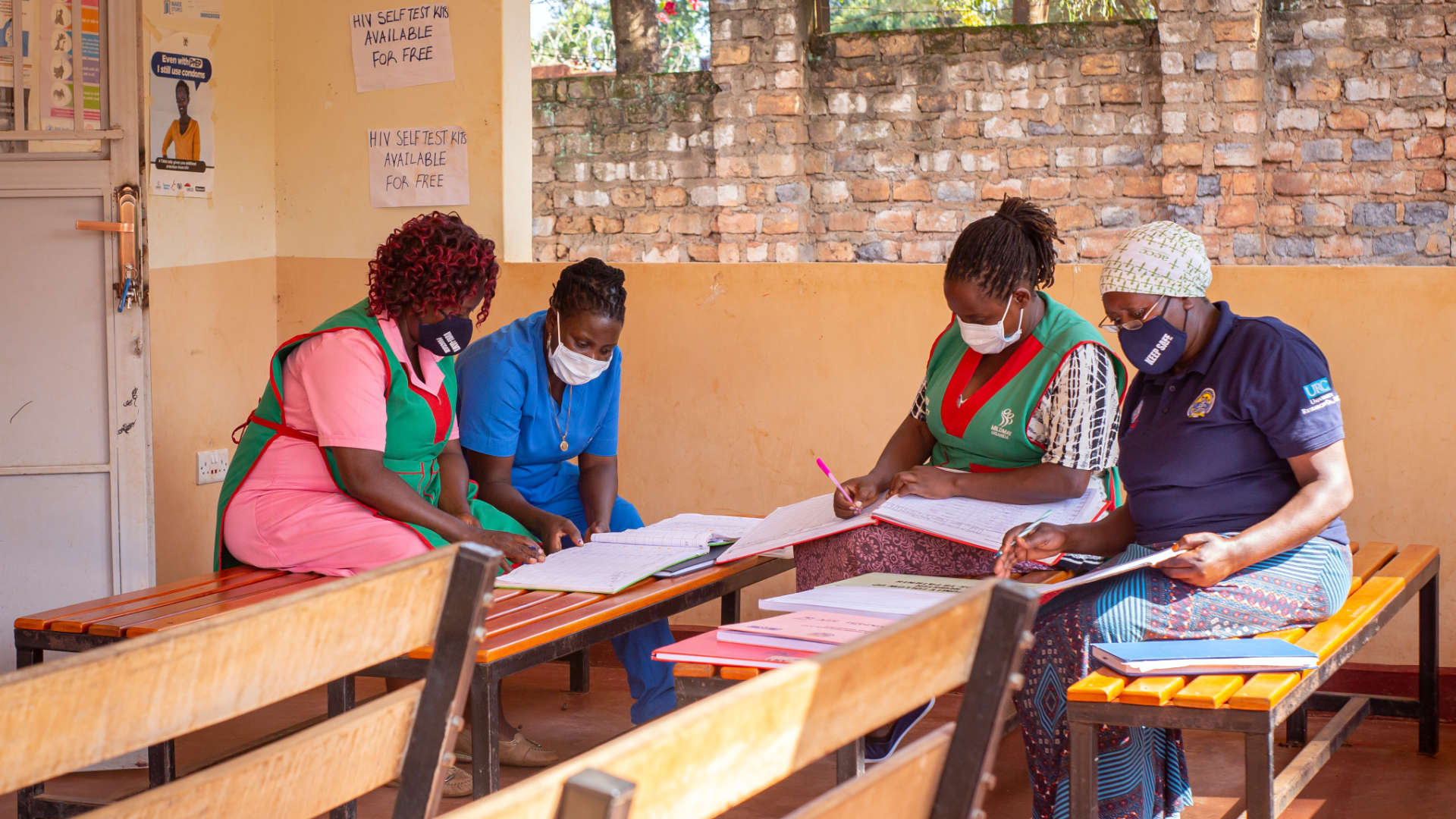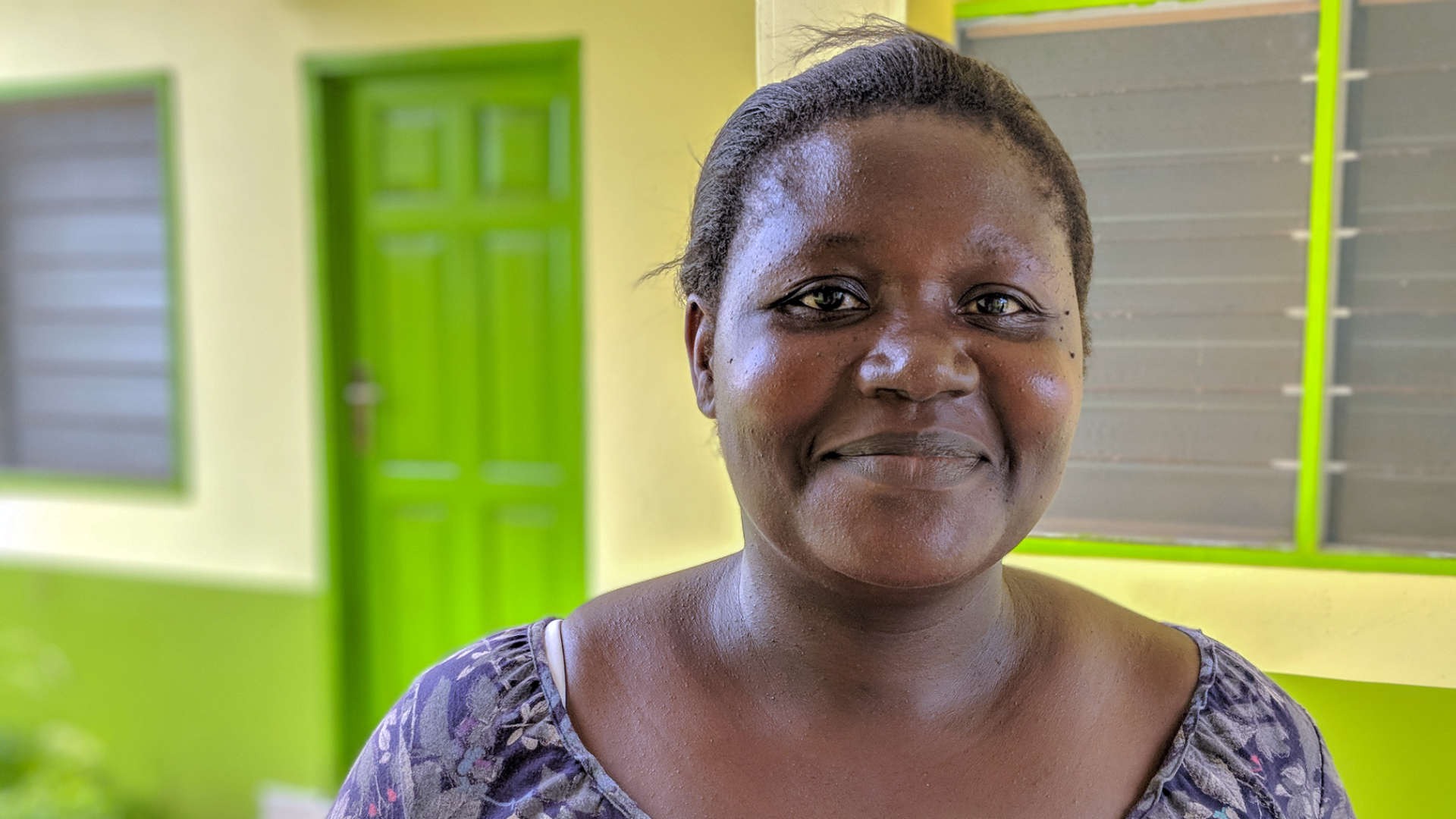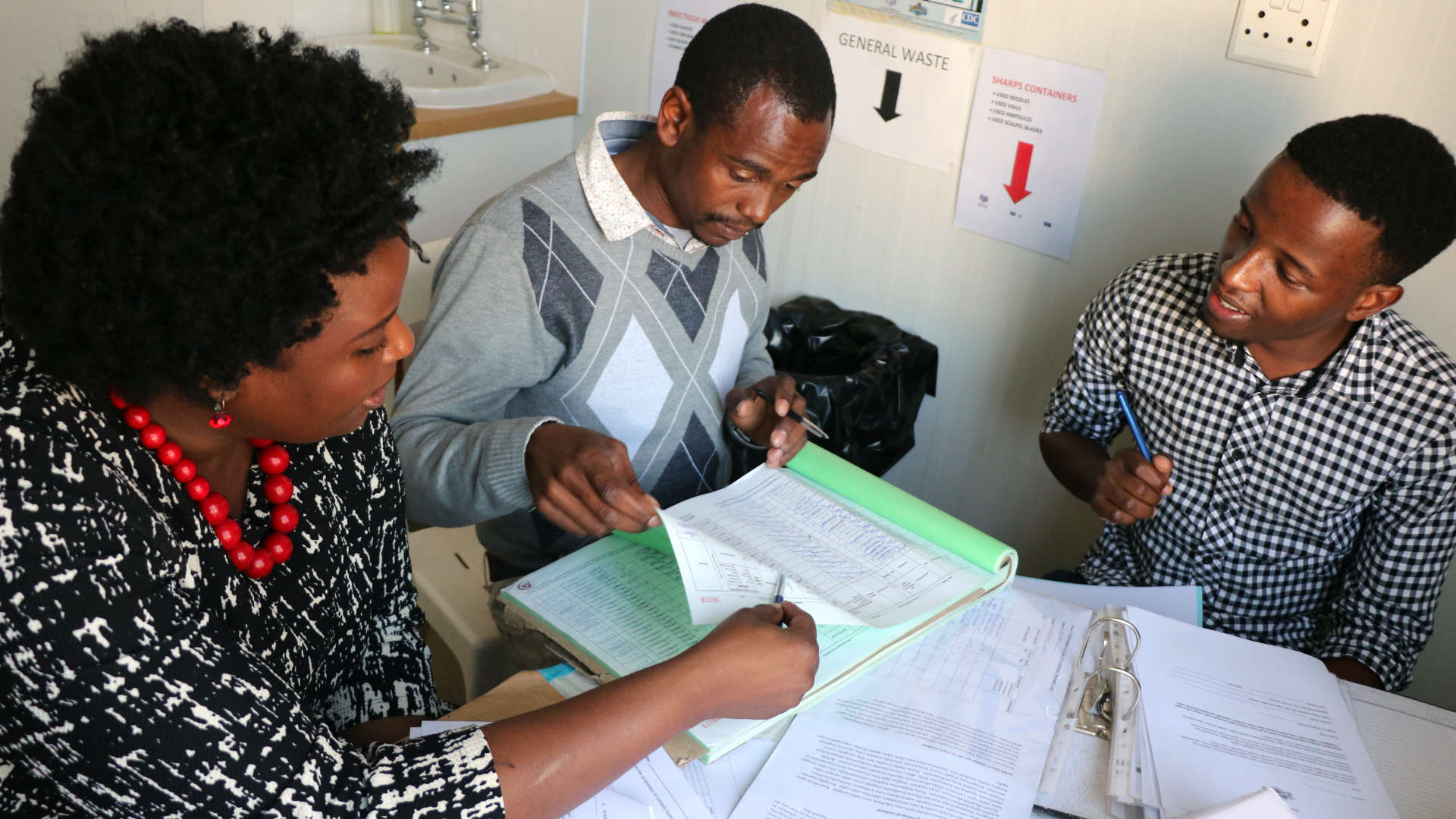URC Webinar – Uganda’s Health Workforce Delivers: Partnerships Matter
On July 12, 9:00am EDT / 4:00pm EAT, URC hosted a 45-minute webinar featuring a keynote by the Hon. Dr. Jane Ruth Aceng Ocero, Minister of Health, Uganda; remarks from Diana Putman, Acting Assistant Administrator, Africa Bureau, USAID and Aleathea Musah, Deputy Director, Office of Health and HIV, USAID Uganda; and a panel discussion with Dr. Abel Nkolo, URC Chief of Party, USAID Defeat TB Activity, Uganda and Juliana Nabwire Ssali, URC Director Quality & Performance, USAID RHITES-N, Acholi Activity, moderated by Lani Marquez, URC Director of Knowledge Management.
URC showed “A Nurse’s Calling,” a film produced for URC by BBC StoryWorks Commercial Productions, and part of the online series Caring with Courage, presented by the International Council of Nurses. The film highlights the extraordinary work of Nurse Rose Mugerwa, Nursing Officer-in Charge at a TB diagnostic and treatment center in Mukono District, Uganda, supported by the URC-led USAID Defeat TB Activity.
URC’s collaboration with Uganda’s health workforce, local organizations, and government partners continues to make a meaningful impact on the delivery of quality health services for better health outcomes.
Questions & Answers
The following questions were submitted by webinar attendees. Due to time limitations, we were not able to get to all questions during the webinar. Responses to questions are listed below.
What professional support is there from Uganda’s Nurses and Midwives Council (NMC) and the Uganda Ministry of Health for our nurses during the COVID-19 pandemic?
- Training on COVID-19 prevention
- Provision of personal protective equipment (PPE)
- Guidance provided for continuity of essential health services
- Treatment services for affected staff
- Additional health workers were engaged on short-term contracts to relieve the pressure on existing staff
How best can health training institutions align with health facilities to strengthen the health workforce?
- Curriculum review to align with the population’s health needs and health worker roles
- Training of nurses on the application of continuous quality improvement approaches
- Competence based training and leveraging of virtual platforms for ongoing continuing professional development
- Orientation and practicums at different levels of the health system
How infectious is multidrug-resistant TB (MDR-TB)?
- MDR-TB is highly infectious, especially in settings with high concentrations of patients with MDR-TB. Transmission is more than 10-fold among health care workers providing MDR-TB care compared to the general population
- More drug-susceptible TB (DS-TB) is seen in MDR-TB patient contacts, in whom we expect to see MDR-TB. This requires further research.
The borderline districts with the Democratic Republic of the Congo (DRC) has some challenges with regard to TB treatment outcomes. Please share your thoughts on this situation.
- Efforts are underway to mitigate loss to follow up through cross-border initiatives
- These cross-border initiatives include capturing multiple contacts and locator information, proactive referral to closer facilities, multi-month dispensing (MMD) and collaborative patient tracking between in-country and cross-border facilities as well as attachment of community health workers at the beginning of treatment to facilitate ongoing support and monitoring of activities
How can artificial intelligence (AI) partners like ourselves collaborate with ongoing TB screening programs?
- Contribute to the development and availability of tools to facilitate sensitivity of TB screening programs such as computer-aided detection for TB (CAD4TB), screening apps, and efficiencies in screening and diagnostic cascades
- Contribute tools that relieve the workload pressure, provide decision support, and ease data management
In the fight to end TB by 2030, what new strategies is Uganda adopting outside of the current strategies in use?
- Application of continuous quality improvement collaborative approaches and scale-up of “change packages” for active TB case finding, treatment success rate improvement, and TB preventive treatment initiation and completion
- Scale-up of new screening tools such as x-ray to optimize screening, True Nat, TB LAM, and CRP especially among priority groups including use of alternative samples for TB testing among children
- Community awareness screening testing and treatment (CAST) campaigns for TB
- Multi-sectoral stakeholder engagement and accountability
- Expansion of private sector engagement
- 3-by-1 strategy for scale-up of TB preventive therapy including introduction of shorter TB preventive treatment regimens
- Adaptation of shorter, all-oral World Health Organization-approved treatment regimens
Evidence has shown that proactive contact tracing and community initiation on treatment could potentially end TB. Any near future plans?
Uganda started efforts of contact tracing among contacts of index TB patients. This data is captured routinely by DHIS2. Contact tracing among drug-resistant TB patients is 100% while among drug-susceptible TB contacts it is about 40%. Efforts are still needed for the government and its partners to increase this intensity of contact tracing. The current CAST TB campaign which is a door-to-door activity to create awareness and screen and diagnose TB is a good opportunity to intensify contact tracing and community treatment initiation. This occurs every six months in March and September. However also Routine activities around contact tracing should continue.
What strategy is in place to continue with the delivery of TB treatment now that the project is coming to an end?
The project has been working with stakeholders, districts, health facilities, and communities to ensure treatment is administered. These structures are still in place with the USAID Local Partner Health Services (LPHS) TB Activity, which is a follow-on project to Defeat TB. The Activity has already taken up some of the types of activities implemented under Defeat TB and will be working with the Government of Uganda and other stakeholders to build on current initiatives for treatment. Ultimately, these structures will be supported by the government to continue TB treatment delivery.
Top photo of Nurse Rose. Photo credit: BBC StoryWorks Commercial Productions


